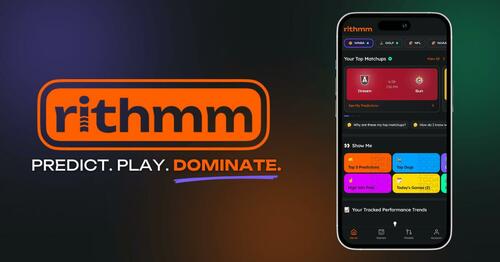High Rollers & Algorithms: Meet The Dudes Cashing In On AI Gambling Bots
Long before Las Vegas emerged from the Nevada desert, gambling has ranked among America’s most enduring pastimes – and in the age of artificial intelligence, it stands poised for a technological transformation. A new crop of tech entrepreneurs is racing to develop the world’s first AI-powered gambling agents designed to help sports bettors generate substantial returns.
Take Szeder, founder of MonsterBet, is at the forefront with MonsterGPT, launched in early 2025. The tool uses web scrapers and retrieval-augmented generation (RAG) to analyze real-time data and select bets on professional sports. “Some users, myself included, are hitting winners 56% to 60% of the time,” Szeder, a computer science graduate, told WIRED. Access runs $77 a month.
Massachusetts-based Rithmm offers its “AI-powered sports intelligence” for $30 monthly, while JuiceReel provides a free basic app, according to WIRED. Beyond traditional sports, Tom Fleetham, formerly of blockchain firm Zilliqa, built an AI named Ava for horse race predictions. “Her analysis was sharp,” he told the magazine, though placing bets was a hurdle.
The sports betting industry has skyrocketed since the Supreme Court overturned the federal betting ban in 2018, with mobile platforms like DraftKings and FanDuel fueling a multibillion-dollar market. Analysts project revenues could hit $14 billion by 2028. In 2023, ESPN partnered with PENN Entertainment to launch ESPN BET in 16 states. The $1.5 billion, 10-year deal, plus $500 million in stock warrants, included a mobile app, website, and retail locations, integrating odds across ESPN’s platforms.
Yet, the industry’s growth comes with warnings. Critics argue that AI-driven algorithms and aggressive marketing could exacerbate addiction and financial strain, pressing regulators and operators to prioritize social responsibility. States such as New York (which never met an industry they didn’t want to regulate), introduced rules last year aimed at shielding residents from potential risks associated with online gambling.
Under existing regulations, all gambling and sports betting advertisements were required to display problem gambling warnings and provide hotline numbers for individuals experiencing gambling addiction. The new law expands these requirements, according to the Times Union, specifying that mobile sports betting platforms must comply with the same regulatory standards governing other gambling establishments and venues.
“I want New Yorkers to be able to safely enjoy the activities they love while proceeding with caution when necessary,” New York Kathy Hochul said at the time. “New Yorkers will have easier access to the safety resources they need to better protect themselves from the grips of addiction.”
Tyler Durden
Sat, 09/06/2025 – 18:05ZeroHedge NewsRead More






 R1
R1
 T1
T1


